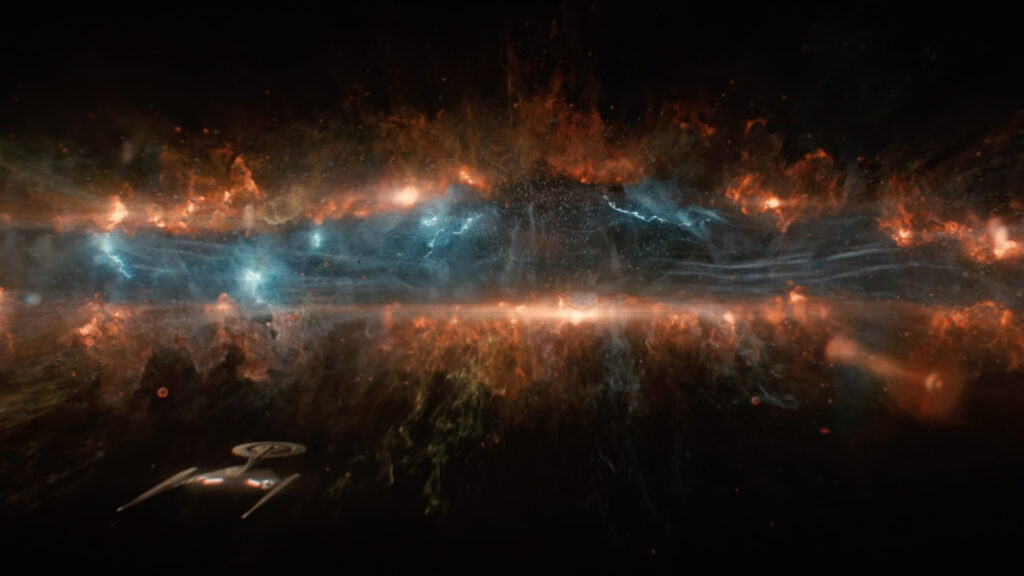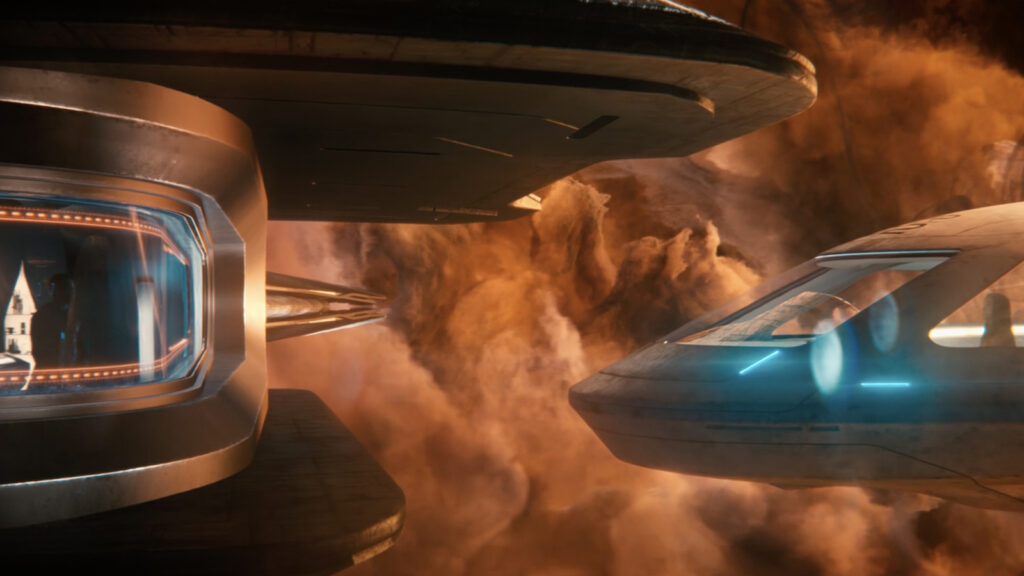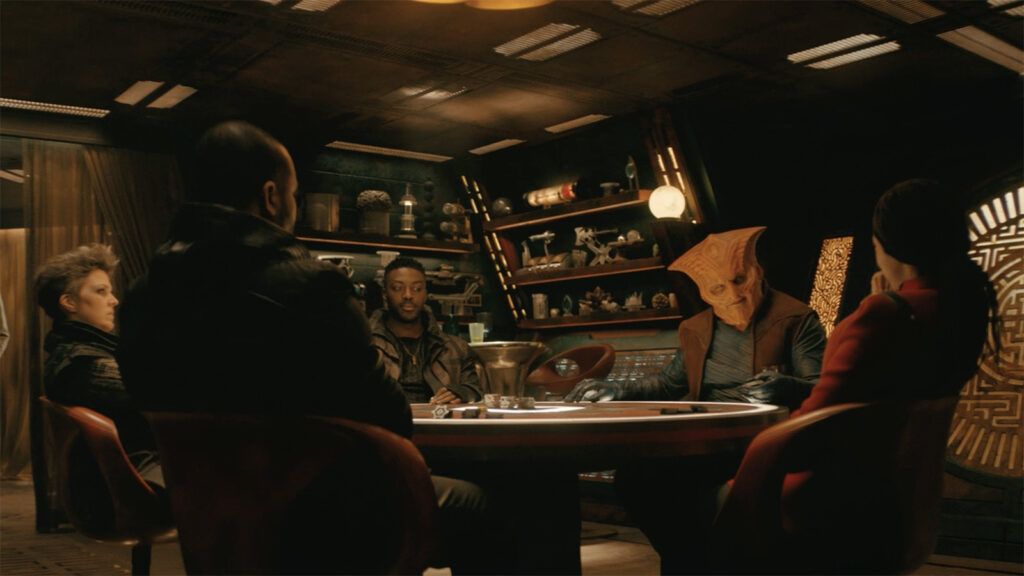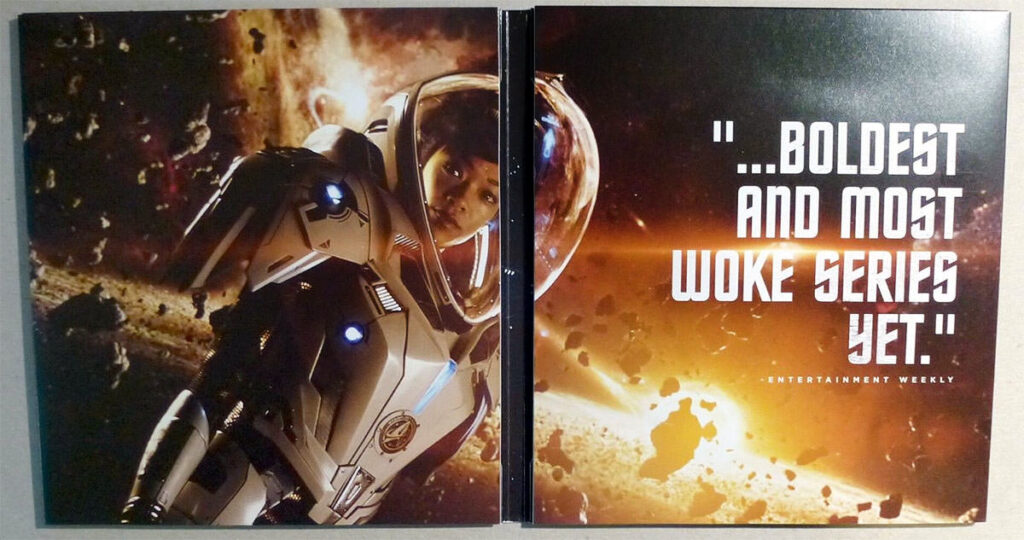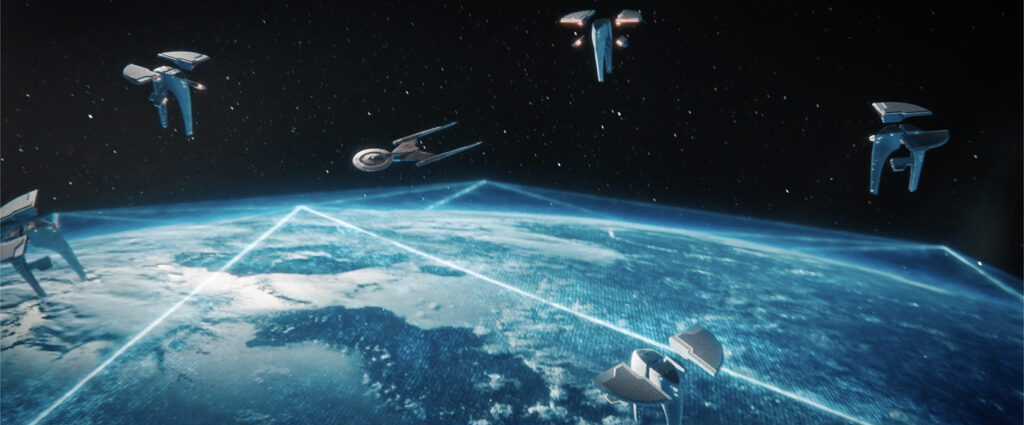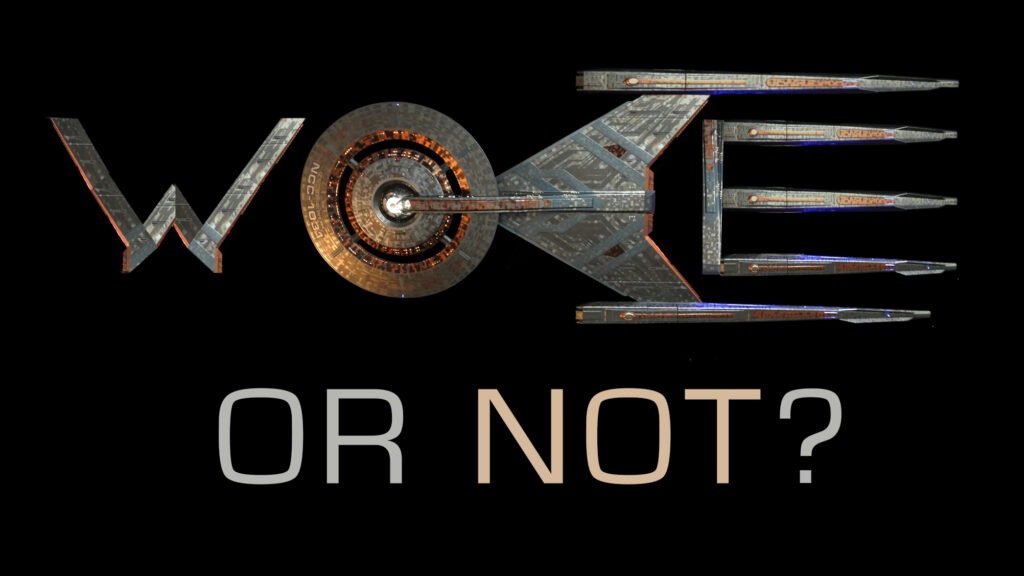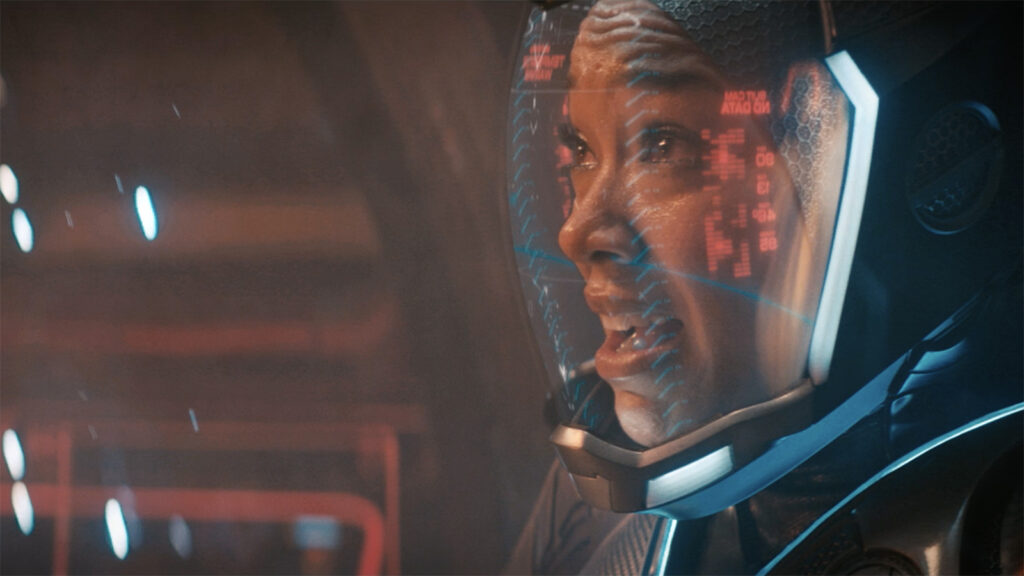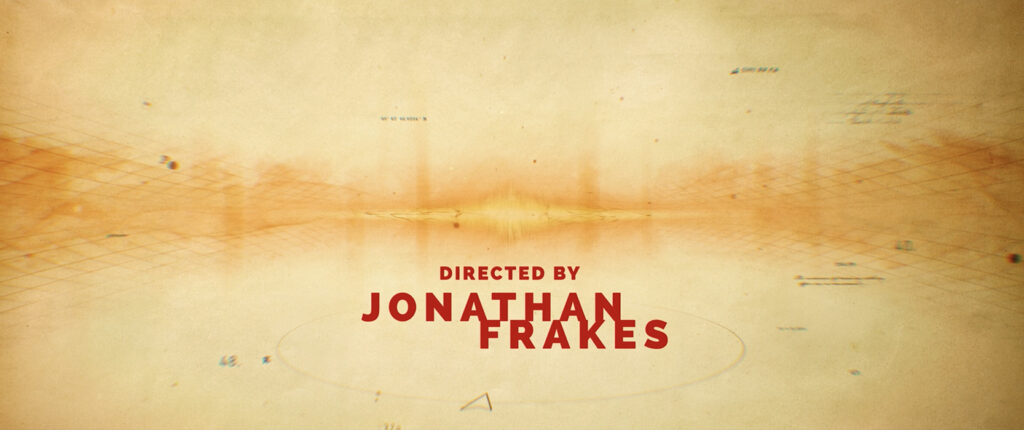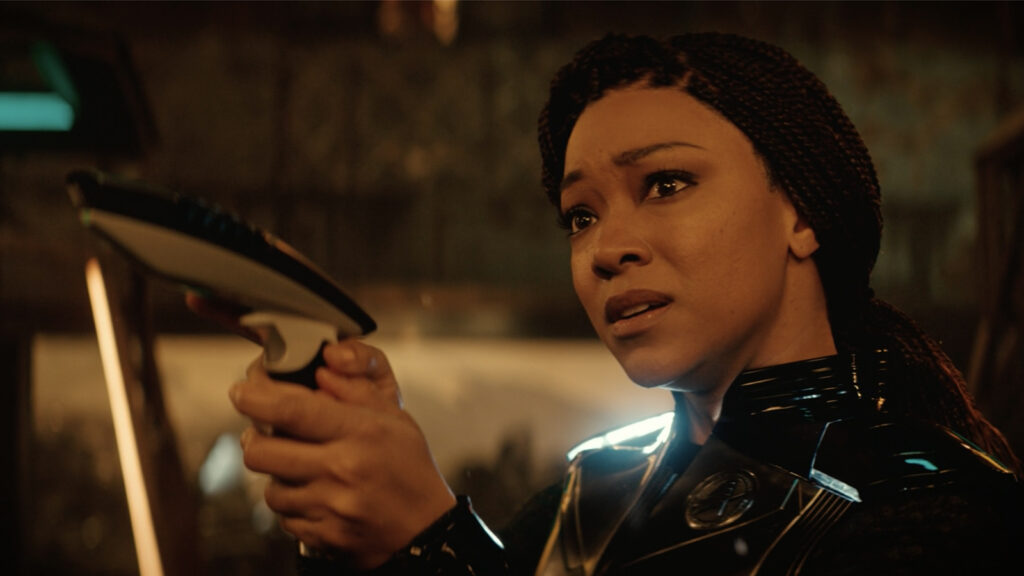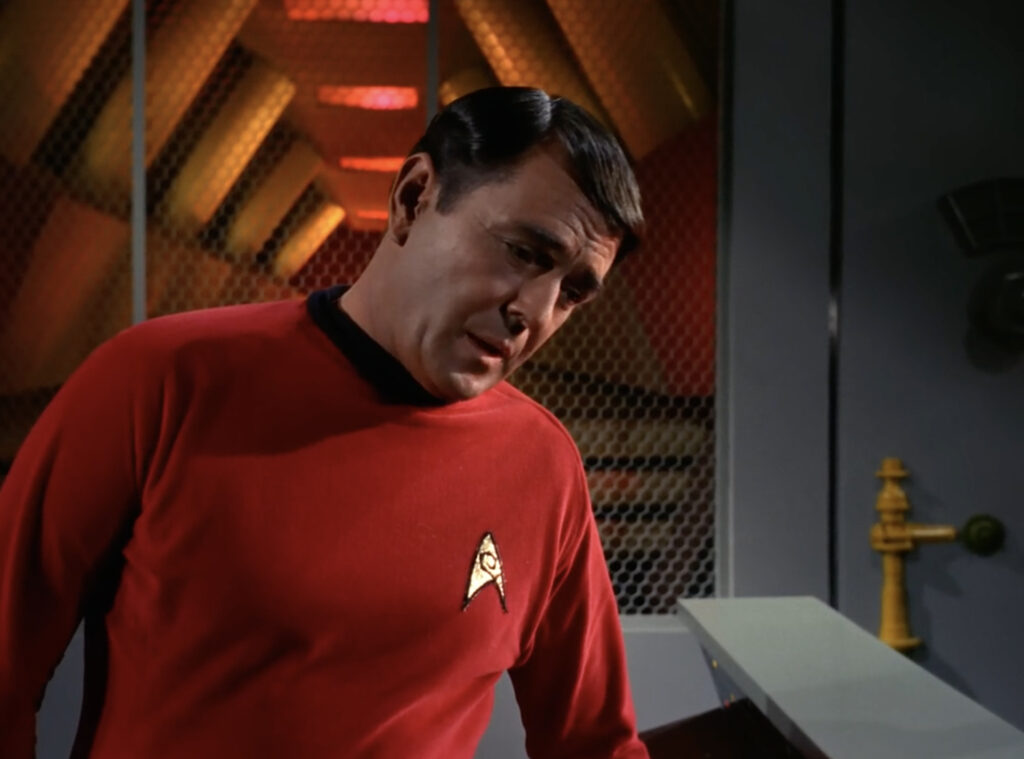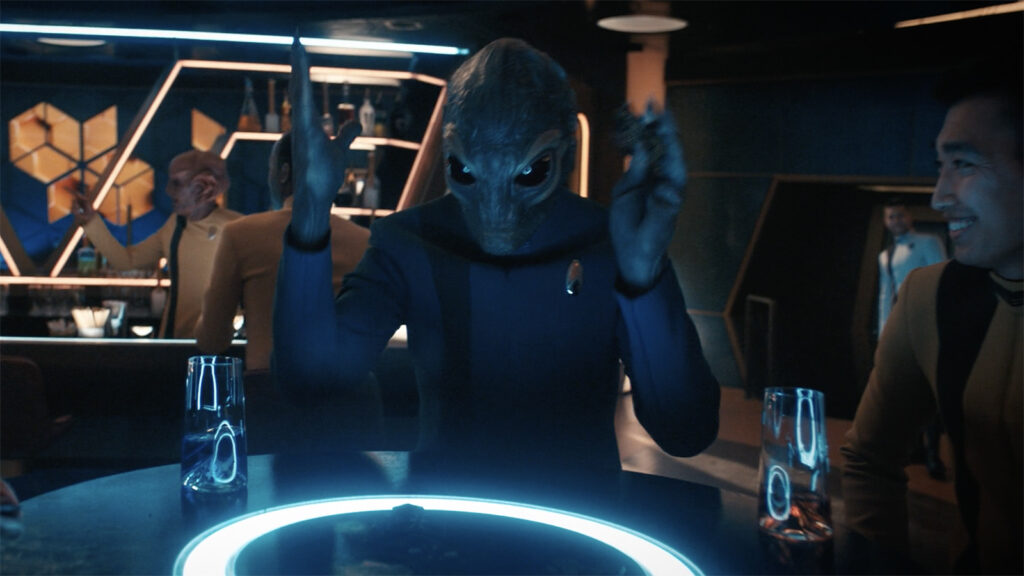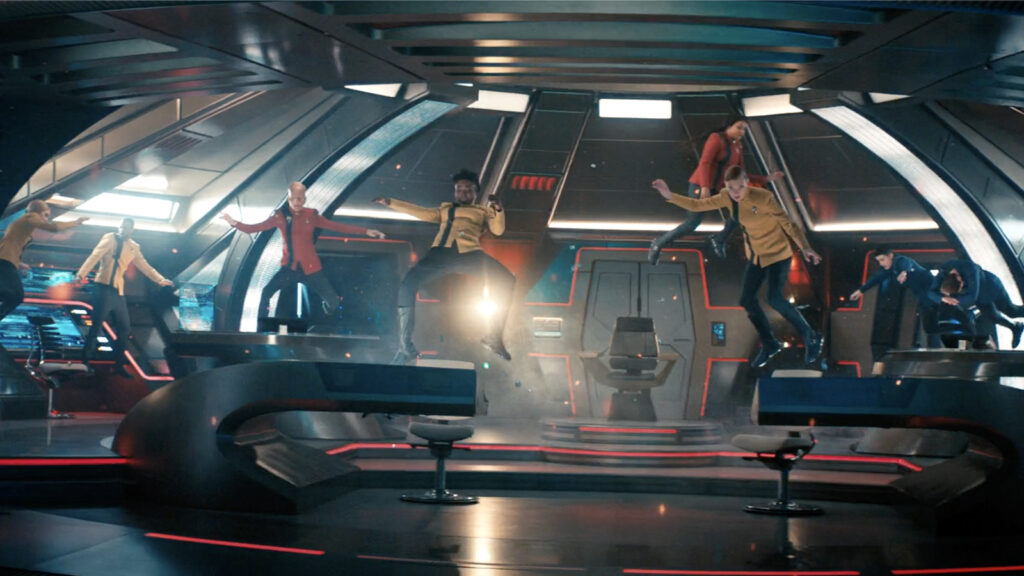THE GREAT WALL OF SPOILERS
Perhaps I should have realized it when I heard Dr. Kovich reference Gilligan’s Island in the opening scene of STAR TREK: DISCOVERY‘s tenth episode of season four, “The Great Barrier.” Realized what? Well, those castaways set out on a “three hour tour” and ended up spending a LOT more time stuck in the same place. And that’s kind of what’s been happening with Discovery this season.
While there’s nothing inherently wrong with the decision to have season-long story arcs—as Discovery has done since season two and arguably since season one)—it does present a challenge for properly pacing out the general plot line. Thirteen hours (give or take) is a massive of time to fill locked into the same overall narrative. It’s certainly not impossible to keep a storyline going for that long, but it often takes a little bit of “padding” to stretch things out a bit. And a little bit is good. It gives the creators a chance to develop the characters, something that was frustratingly absent with the manic pace of the first two seasons. So, yeah, a little bit is good. A…little…bit.
For the first half of season four, the pacing of the overall story arc was decent. The anomaly (DMA) wasn’t even introduced until the end of the first episode, and it kind of took a back seat over the course of the next few episodes, although the second episode dealt with the trying to collect data on the distortion while spotlighting Book’s emotional devastation. But then we had episodes dealing with (in this order) finding a rogue Romulan ninja nun, Tilly leading a group of Starfleet cadets (and Adira) to safety after a shuttle crash while Burnham and Saru try to talk Ni’Var into rejoining the Federation, and then freeing trapped prisoners in the path of the DMA’s destruction while an experiment on board Discovery nearly destroys the ship (and introduces Ruon Tarka).
Five episodes in, and there was a steady build-up of the DMA in importance. That led to episode six, where Discovery has to actually enter the subspace rift to collect otherwise irretrievable data on the DMA. And now the main story arc had taken center stage, exactly when it should have, building to a big clash in episode seven (just before the holiday hiatus). Michael and Book lock horns over what to do about the device generating the DMA: destroy it or try to contact Unknown Species 10-C and ask them politely to turn it off. Both arguments sounded reasonable, something which has been a part of Trek since TOS.
Perfect pacing so far. The first half of the season ended with a strong cliffhanger and the promise of even more revelations and action in the final six episodes.
And then Star Trek: Discovery kinda got stuck…
Continue reading “DISCOVERY’s “The Great Barrier” was a lot to get through… (editorial review)”
